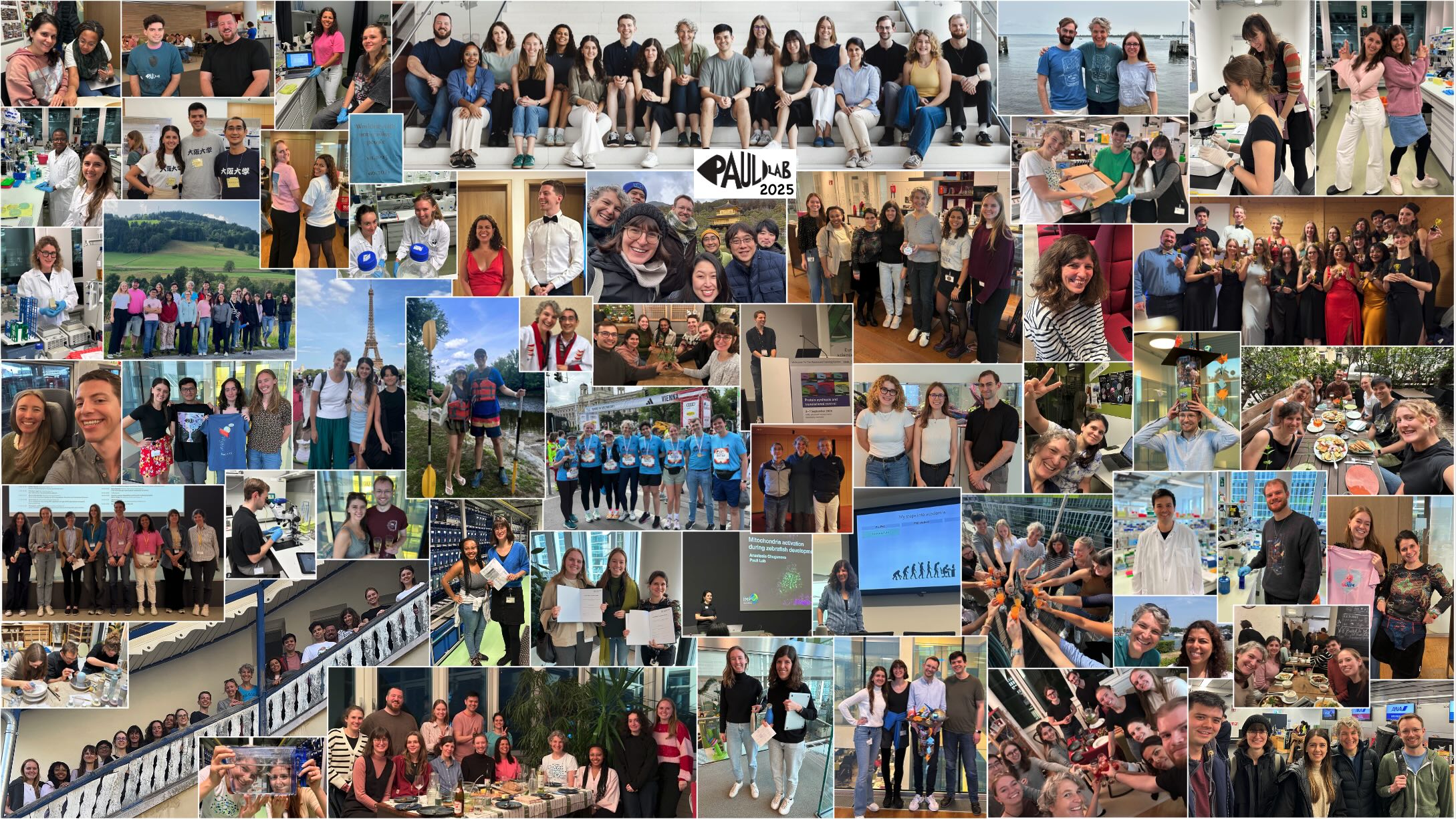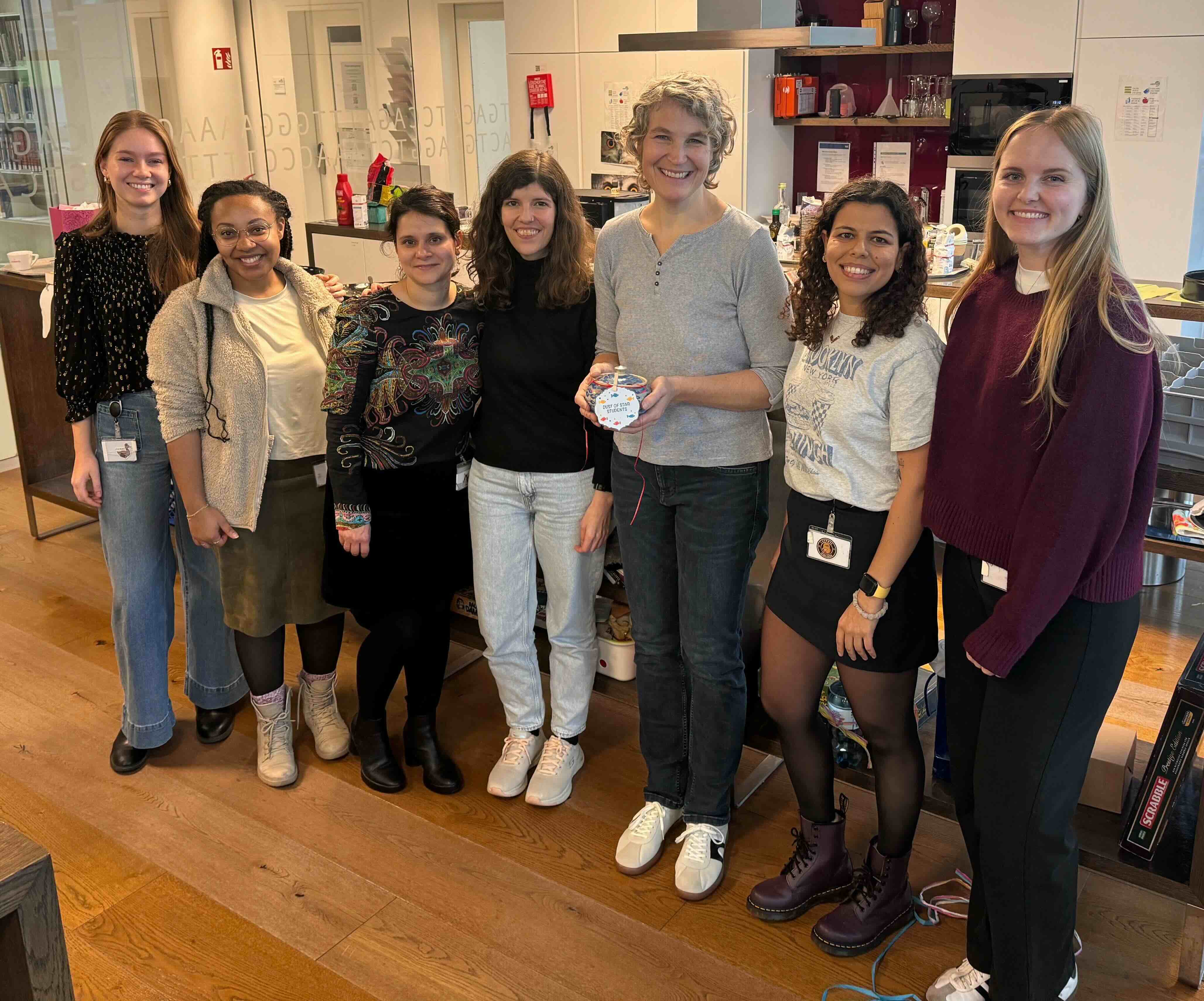A very happy 2026!
01 Jan 2026
The Pauli lab wishes you all a very Happy New Year!
Looking back at 2025, we have some fun memories to share. Let 2026 be a happy, healthy and fulfilling year for everyone!

The Pauli lab wishes you all a very Happy New Year!
Looking back at 2025, we have some fun memories to share. Let 2026 be a happy, healthy and fulfilling year for everyone!

The end of the year also brings new chapters, and today we said a heartfelt goodbye to several Pauli Lab members: Laura, Nastya, Theresa and Isa. After sharing a delicious lunch together, we exchanged farewell gifts to celebrate their time with us, including custom-made shirts, photobooks filled with lab-memories, and a special “PI starter kit” for Laura, who is starting her own group at the IMB in Mainz. Thank you to all my ‘star-dust’ students & postdocs for your outstanding contributions to the lab, both scientifically and personally. You have each left a lasting mark on the Pauli Lab, and you will be greatly missed.
We wish you all the very best for your undoubtedly bright and exciting futures!

The Christmas season has officially arrived in the Pauli Lab, with Andi’s lab advent calendar and our annual Christmas outing!
This year, we stretched the creative half of our brains during a festive pottery painting session, followed by mulled wine at one of Vienna‘s countless Christmas markets. We wrapped up the evening with delicious Korean food and exchanged Secret Santa gifts. A wonderful way to celebrate the end of the year together - Happy Holidays from the Pauli Lab!
Find older news in the news archive.